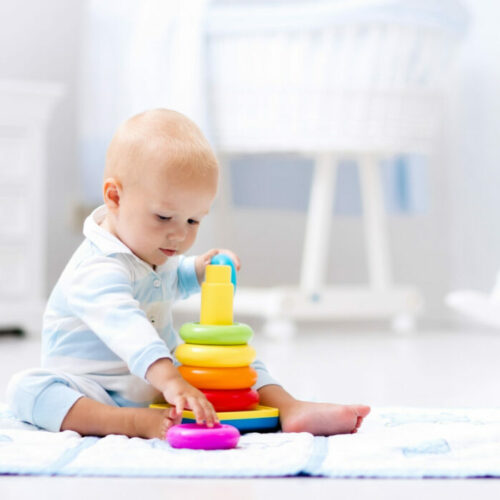Minding young minds
Let’s reflect on how important it is to mind not only our own mental wellbeing, but our children’s mental health too.
Every parent wants their little one to be happy and healthy, searching out the best educational programmes, foods, vaccinations etc. to give them the best chance possible to thrive. However, sometimes we can overlook the fact that what’s going on in their heads is as important as what’s happening physically.

GOOD MENTAL HEALTH
Mental health refers to how children think and feel about themselves and the world around them. Good mental health can be thought of as a state of wellbeing in which your child can realise his or her own potential, cope with the normal stresses of life and work fruitfully, while also enjoying life and engaging well with family and friends. Kids with good mental health feel loved, safe and secure. They have a mostly happy and positive self-image and show themselves kindness during tricky times or when things don’t go their way. This leads to them being more at ease attempting new or tough things. They have a resilience that allows them to manage worries, anger and sadness, and to bounce back from trying times.
RELATIONSHIPS
Nutritious food, good sleep and physical activity are all huge factors to good mental health. However, one of the lesser discussed keys to strong mental health in young people is their relationships at home. Everyday moments can make a huge difference to their mindset and with time, their mental wellbeing. Here are some suggestions that can help your child feel loved and supported within their family relationships:
- Let your child know that you love them no matter what
- Use body language to express love, such as eye contact, smiles, hugs etc.
- Remember to praise good behaviour and effort
- Make time each day to chat with one another
- Do activities together such as colouring, sports, walks, board games etc.
- Be kind and patient, and practice listening to your child
- Have regular family meals
- Encourage your child to connect with others where possible
- Spend time in nature
- Support and validate your child’s passions and interests

MANAGING FEELINGS
Emotions are a big part of life and unprocessed ones lead to poorer mental health. Here are ways you can help your child learn to manage their feelings:
- Talk about emotions and teach kids to recognise and name their feelings
- Reassure them that their feelings aren’t ‘weird’ but perfectly natural
- Model a positive outlook
- Help children manage small anxieties so they don’t grow into bigger concerns
- Encourage children to do the things that make them anxious instead of avoiding them, e.g. trying out for sports teams
- When something is bothering your little one, make sure they know you’re there for them, give lots of reassurance and make a plan together to deal with their issue
With these tips in mind, you should be better able to give your little one the warmth, care and attention they need to blossom. However, if you have concerns and you think your child needs a greater level of help and support, don’t hesitate to seek out professional advice.











Comments